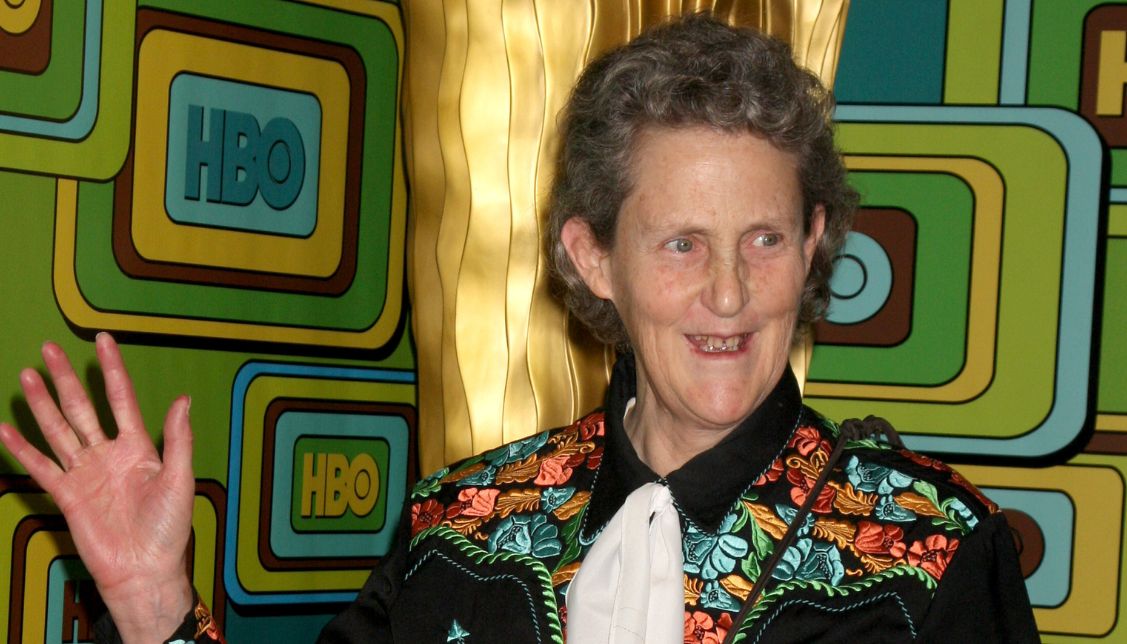 Add My Company
Add My Company
Temple Grandin: Talking with the Animals

World-famous animal behaviourist and academic who has been a leading campaigner for animal rights and the humane treatment of livestock; 76-year-old Temple Grandin has also been instrumental in promoting animals as a means of autism therapy after being diagnosed with the condition herself.
Believing autism has helped her connect with animals, she has written hundreds of academic reports and books on why the human race should be kinder to them.
Who is Temple Grandin?
Born in Boston, Massachusetts, in August 1947, Temple was the daughter of real estate agent Richard and actress Eustacia Grandin. One of four siblings, she was provisionally diagnosed as having symptoms of autism spectrum disorder at the age of two, after being unable to speak.
She communicated her frustration by screaming, humming and making “peeping” sounds. However, she wasn’t formally diagnosed until early adulthood.
In an era when little was understood about autism, doctors advised that Temple should be put in an institution when she was two, but fortunately her forward-thinking parents defied their advice and instead, Eustacia sent Temple to specialists at Boston Children’s Hospital, who organised speech therapy and intensive education to help her to talk.
At the age of three, Temple had a nanny who was instructed to play educational games with her. Finally speaking at four, she was able to attend Dedham County Day School’s kindergarten, where teachers and pupils created an environment to cater for her sensitivities and needs.
As a teenager, she found high school life challenging, as other children were cruel and picked up on the fact she was “different”. She later described these as some of the worst years of her life, referring to herself as the “nerdy kid” who was taunted and ridiculed. However, her high school science teacher William Carlock and Temple’s own aunt, Ann, mentored the teen and recognised her keen interest in animals.
She didn’t let her autism stand in the way and instead went on to attend Franklin Pierce College, where she attained a bachelor’s degree, in human psychology, in 1970. Not stopping there, Temple then earned her master’s degree in animal science in 1975 at Arizona State University, followed by a PhD in animal science in 1989 at the University of Illinois. This helped her to become a scientist and livestock equipment designer, as she had spent much time at her aunt’s ranch in Arizona and always had a keen interest in farm animals and their wellbeing.
After completing many studies on livestock, she has published academic articles in the International Journal for the Study of Animal Problems, including her research on beef cattle, entitled Livestock Behaviour as Related to Handling Facilities Design.
Her work has also included designing practical aids to improve the life of livestock and devising a system to assess the humane handling of animals at abattoirs. This is used by many meat-producing companies all over the world today to ensure humane treatment is practiced.
Temple’s mother, now called Eustacia Cutler after divorce and remarriage, is 97 and a well-respected author. She has written best-selling books on her life with Temple and about autism, including Autism and Us: Old as Time.
Career and achievements
For Temple Grandin, autism has never been a barrier to living life to the full. Instead, it has helped her to form close bonds with animals during her studies and career.
To great critical acclaim, she has written two books: Animals Make Us Human and Animals in Translation. She gives lectures all over the world to promote the message that they have emotions, just like people.
A tireless campaigner for livestock to be treated humanely, Temple is also a world-famous autism spokesperson, promoting the message that animals and autism therapy are closely linked. In her lectures, she says animals live in a sensory-based world, making them see everything differently from most human beings.
For example, having worked extensively with cattle, she realised their life was negatively impacted by their environment and what they could see in their pens. She devised a way of improving their lives just by enhancing the lighting indoors.
Temple told an audience of animal welfare professionals at a lecture that it was “stupid” to say animals didn’t have emotions while people express how they feel in a complex manner through speech, dogs have the same neurotransmitters as we do and communicate emotions in their own way.
Anything new can be interesting or frightening to an animal, but like people, they have a desire to find out about things and seek answers. Citing a video circulating online in which cows in a field were introduced to a remote-controlled toy car, she noted that initially they were afraid, but they soon started playing by chasing it around the pasture.
Animals can create a lasting first impression of someone or something, such as vet’s visits, which can impact how they behave for the rest of their life. For example, Temple suggests making a dog’s first trip to the vet’s a positive one by taking them in early, giving them treats in the waiting room and then leaving again, going back around an hour later for the actual appointment. This way, they won’t be afraid, as they will associate the surgery with treats and positive things.
Temple is a firm believer that her autism has helped her connect with animals in a totally unique way. She feels when we make the effort to understand animals, we will have a better understanding of how to treat each other as people.
Promoting the theory that our brain can be more “social-emotional” or more “thinking”, Temple discusses a pioneering academic paper that suggests a solitary animal is a model for autism. Lions tend to be more social creatures than panthers and leopards, living in a pride, but this doesn’t mean there’s something wrong with solitary animals, she points out.
Describing herself as having more of a “thinking” brain, she says it’s simply a “personality difference”, with both kinds of mind complementing each other.
Awards and accolades
Time Magazine has named Temple as one of the world’s most influential 100 people in the Heroes category for her work promoting the humane treatment of livestock. She won a Double Helix Medal in 2011 from Cold Spring Harbour Laboratory for positively impacting human health by raising awareness and funds for research.
Inducted into the American Academy of Arts and Sciences in 2016; in 2023, Kansas State University made her an Honorary Doctor of Veterinary Medicine. The same year, Iowa State University also awarded her an Honorary Doctor of Science Degree.
For more information on Temple Grandin: Talking with the Animals talk to Kinderkey Healthcare Ltd

